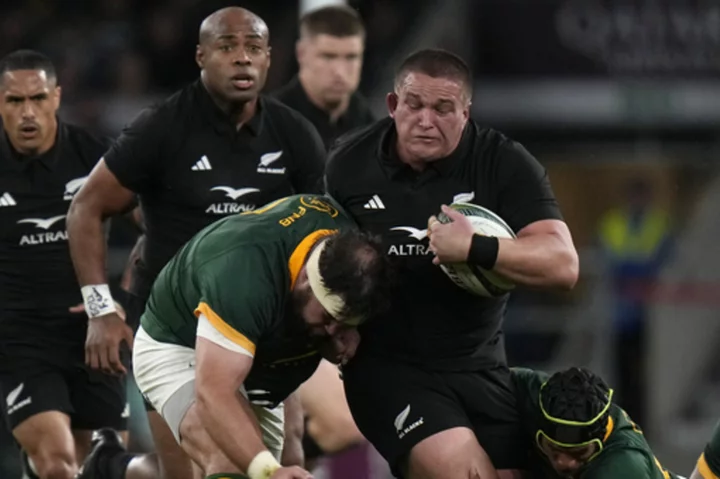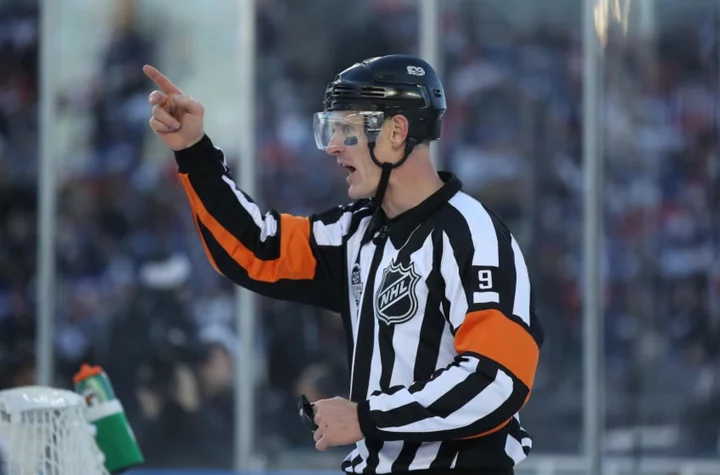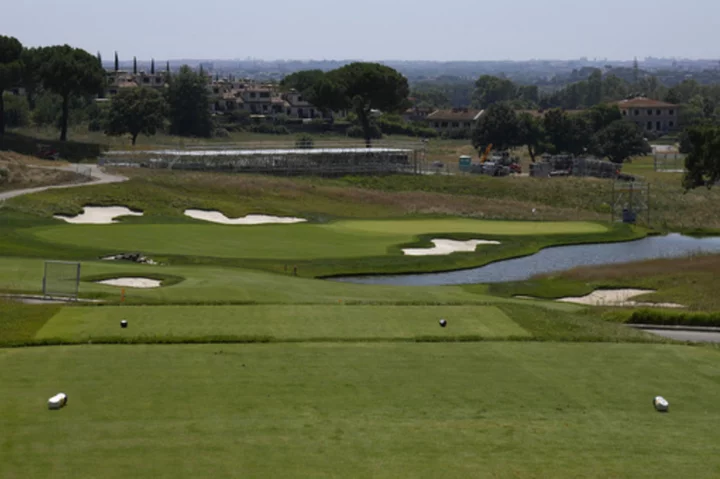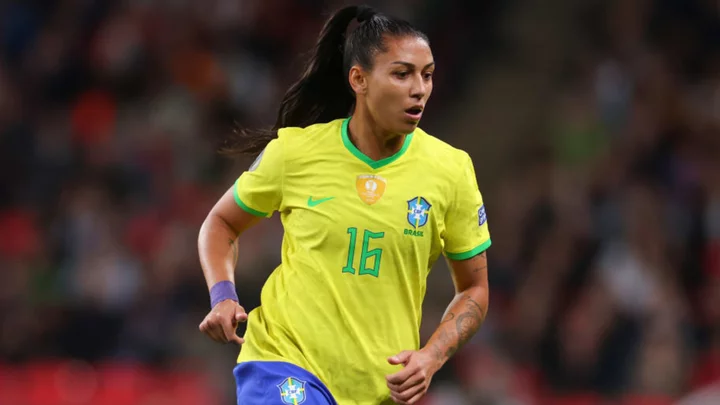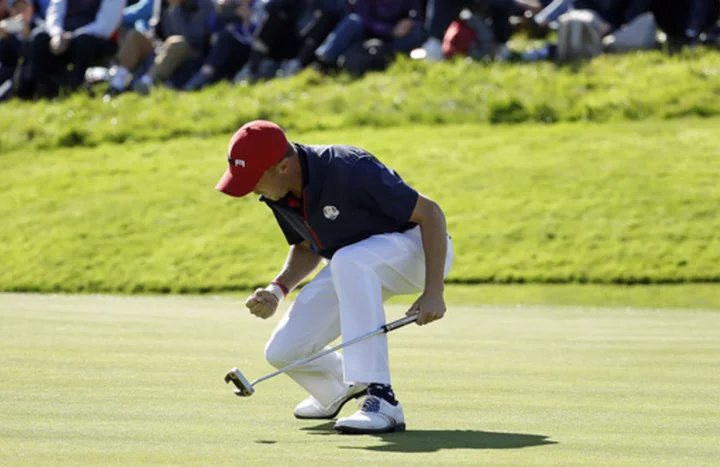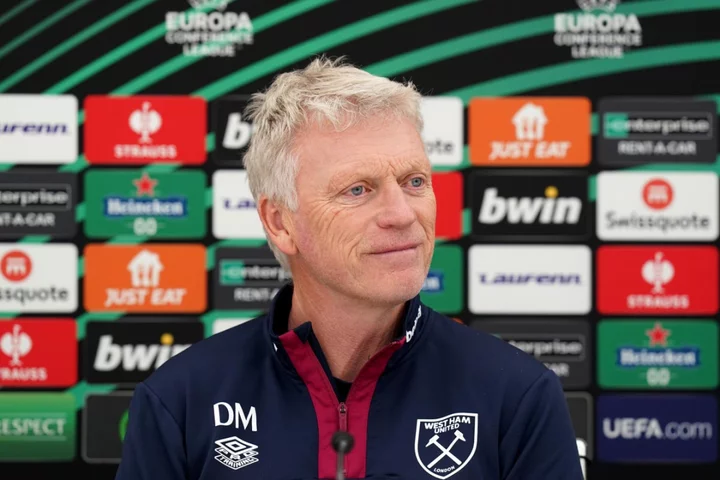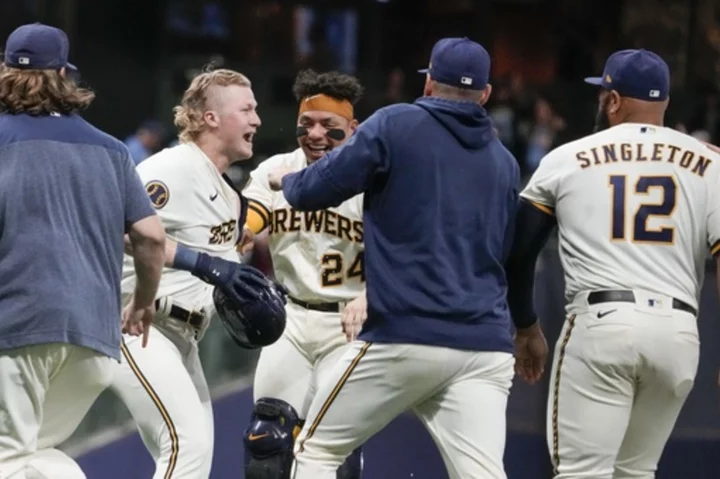David de Gea, Sir Alex Ferguson’s last player, ends 88 years of Manchester United history
Sir Alex Ferguson managed Manchester United for 26 years and 1500 games, but he only attended 1497 of them. He missed three: one for his son Mark’s wedding, one for his sister-in-law’s funeral, and a League Cup tie against Scunthorpe in 2010 when he went on a scouting trip. The sense then was that he was watching United’s Champions League opponents Valencia; instead the teenage goalkeeper in the opposition side, Atletico Madrid, was the focus of his attention. A dozen years since he was signed, David de Gea’s departure removes the last survivor of the Ferguson era: for the first time since the relegation season of 1973-74, United in 2023-24 will not feature anyone who has made or will make an appearance for the great Scot. For the first time since 1934-35, there will be none who have played or will play for Ferguson or Sir Matt Busby. Erik ten Hag calls upon Ferguson’s counsel but there are ways in which he makes a break with the past, as Harry Maguire and Cristiano Ronaldo can testify. But De Gea was always intended to be part of Ferguson’s legacy: bought when the manager was approaching his 70th birthday, signed with his successors in mind. Ferguson could be selfish and selfless and De Gea reflected the latter: United got 545 appearances from the Spaniard, the seventh most in their history and second only to Wayne Rooney among those Ferguson bought, and 190 clean sheets, 10 more than even Peter Schmeichel. And yet his is a legacy that leads itself to different conclusions. De Gea’s dozen seasons brought a lone league title: the previous 13 produced eight, with four Champions League final appearances and two victories on the biggest stage. De Gea’s last decade comprised of United’s wilderness years; in the worst of them, 2021-22, one of their most eloquent critics was the goalkeeper himself, when his own excellence gave him freedom to express his frustration. But his last game provided a sadly fitting end: De Gea was beaten inside 13 seconds in the FA Cup final, then horribly culpable for Ilkay Gundogan’s ultimately decisive second goal. His final year felt a series of indignities: United’s Europa League exit to Sevilla owed much to a De Gea shocker, capped by an embarrassing error. His last few years at Old Trafford were pockmarked by two problems: an increasing number of mistakes – far more forgivable in his good years – and his limitations in distribution; many of his best saves were with his feet, but he struggled to use them to find teammates. Perhaps August’s 4-0 defeat to Brentford was the beginning of the end in that respect; it was evident he was an imperfect fit for Ten Hag’s style of play. It underlined the way that De Gea seemed old before his time, an old-fashioned goalkeeper in a fast-changing role. He is only two years older than Alisson, three older than Ederson, less than five the senior of his probable successor Andre Onana, but seemingly plucked from another generation, one where a goalkeeper’s job did not extend beyond stopping shots. The hashtag at his peak was “DaveSaves”. The issue was that Dave did not kick as well. De Gea was the future once; at 32, he has become the past. He almost joined Real Madrid in 2015, but for a faulty fax machine, but there is no such scramble for his services now. Even before his contract talks with United ended, it became likelier he would not be first choice. Staying would have always involved a sizeable pay cut; in part because his previous deal was so lucrative. He was famously the world’s best-paid goalkeeper; Ole Gunnar Solskjaer used to lazily parrot the line he was the world’s best long after evidence suggested otherwise. But at his peak, he was surely in the top five. He had days when he seemed unbeatable. His 14 saves against Arsenal in 2017 came in an extraordinary display of defiance. United branded him a “legend” in the announcement that he would go. Perhaps he both was and wasn’t: De Gea was sometimes a beacon of excellence in mediocre teams, especially in the years immediately after Ferguson’s retirement. He was named United’s player of the year a joint record four times, but that often reflected a lack of competition. Schmeichel and Edwin van der Sar never won the award but they were Ferguson’s two greatest goalkeeping signings. Each chose his exit and each played his last game in a Champions League final, Schmeichel lifting the trophy in 1999. De Gea’s departure has more common denominators with that of the only other goalkeeper to play 500 games for United: Alex Stepney ended up being dropped by Dave Sexton, his fifth manager. He, too, had had his greatest days in his mid-twenties. There was a point when it seemed like De Gea would be a fixture for years to come, perhaps ending up second only to Ryan Giggs in United’s all-time appearance list. But he started to look a man out of time, even before the interest in Onana suggested he would be a man out of the team. But outstanding as De Gea was in the mid-2010s, as the last link to Ferguson is severed, it serves as a reminder that the last decade has scarcely gone to plan. Read More Why Onana is such an upgrade on De Gea for Man United De Gea confirms Man United exit with ‘farewell message’ to fans Man United transfer news: Mount signs and bid made for Onana
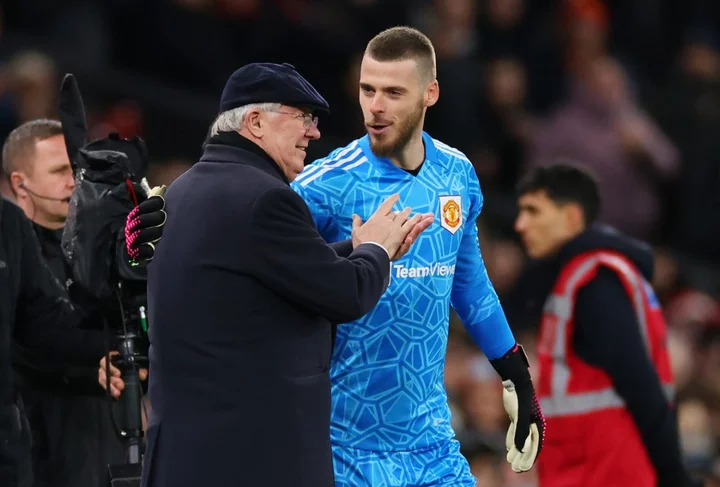
Sir Alex Ferguson managed Manchester United for 26 years and 1500 games, but he only attended 1497 of them. He missed three: one for his son Mark’s wedding, one for his sister-in-law’s funeral, and a League Cup tie against Scunthorpe in 2010 when he went on a scouting trip.
The sense then was that he was watching United’s Champions League opponents Valencia; instead the teenage goalkeeper in the opposition side, Atletico Madrid, was the focus of his attention. A dozen years since he was signed, David de Gea’s departure removes the last survivor of the Ferguson era: for the first time since the relegation season of 1973-74, United in 2023-24 will not feature anyone who has made or will make an appearance for the great Scot. For the first time since 1934-35, there will be none who have played or will play for Ferguson or Sir Matt Busby. Erik ten Hag calls upon Ferguson’s counsel but there are ways in which he makes a break with the past, as Harry Maguire and Cristiano Ronaldo can testify.
But De Gea was always intended to be part of Ferguson’s legacy: bought when the manager was approaching his 70th birthday, signed with his successors in mind. Ferguson could be selfish and selfless and De Gea reflected the latter: United got 545 appearances from the Spaniard, the seventh most in their history and second only to Wayne Rooney among those Ferguson bought, and 190 clean sheets, 10 more than even Peter Schmeichel.
And yet his is a legacy that leads itself to different conclusions. De Gea’s dozen seasons brought a lone league title: the previous 13 produced eight, with four Champions League final appearances and two victories on the biggest stage. De Gea’s last decade comprised of United’s wilderness years; in the worst of them, 2021-22, one of their most eloquent critics was the goalkeeper himself, when his own excellence gave him freedom to express his frustration.
But his last game provided a sadly fitting end: De Gea was beaten inside 13 seconds in the FA Cup final, then horribly culpable for Ilkay Gundogan’s ultimately decisive second goal. His final year felt a series of indignities: United’s Europa League exit to Sevilla owed much to a De Gea shocker, capped by an embarrassing error. His last few years at Old Trafford were pockmarked by two problems: an increasing number of mistakes – far more forgivable in his good years – and his limitations in distribution; many of his best saves were with his feet, but he struggled to use them to find teammates.
Perhaps August’s 4-0 defeat to Brentford was the beginning of the end in that respect; it was evident he was an imperfect fit for Ten Hag’s style of play. It underlined the way that De Gea seemed old before his time, an old-fashioned goalkeeper in a fast-changing role. He is only two years older than Alisson, three older than Ederson, less than five the senior of his probable successor Andre Onana, but seemingly plucked from another generation, one where a goalkeeper’s job did not extend beyond stopping shots. The hashtag at his peak was “DaveSaves”. The issue was that Dave did not kick as well.
De Gea was the future once; at 32, he has become the past. He almost joined Real Madrid in 2015, but for a faulty fax machine, but there is no such scramble for his services now. Even before his contract talks with United ended, it became likelier he would not be first choice. Staying would have always involved a sizeable pay cut; in part because his previous deal was so lucrative. He was famously the world’s best-paid goalkeeper; Ole Gunnar Solskjaer used to lazily parrot the line he was the world’s best long after evidence suggested otherwise.
But at his peak, he was surely in the top five. He had days when he seemed unbeatable. His 14 saves against Arsenal in 2017 came in an extraordinary display of defiance. United branded him a “legend” in the announcement that he would go. Perhaps he both was and wasn’t: De Gea was sometimes a beacon of excellence in mediocre teams, especially in the years immediately after Ferguson’s retirement. He was named United’s player of the year a joint record four times, but that often reflected a lack of competition.
Schmeichel and Edwin van der Sar never won the award but they were Ferguson’s two greatest goalkeeping signings. Each chose his exit and each played his last game in a Champions League final, Schmeichel lifting the trophy in 1999. De Gea’s departure has more common denominators with that of the only other goalkeeper to play 500 games for United: Alex Stepney ended up being dropped by Dave Sexton, his fifth manager. He, too, had had his greatest days in his mid-twenties. There was a point when it seemed like De Gea would be a fixture for years to come, perhaps ending up second only to Ryan Giggs in United’s all-time appearance list. But he started to look a man out of time, even before the interest in Onana suggested he would be a man out of the team. But outstanding as De Gea was in the mid-2010s, as the last link to Ferguson is severed, it serves as a reminder that the last decade has scarcely gone to plan.
Read More
Why Onana is such an upgrade on De Gea for Man United
De Gea confirms Man United exit with ‘farewell message’ to fans
Man United transfer news: Mount signs and bid made for Onana


